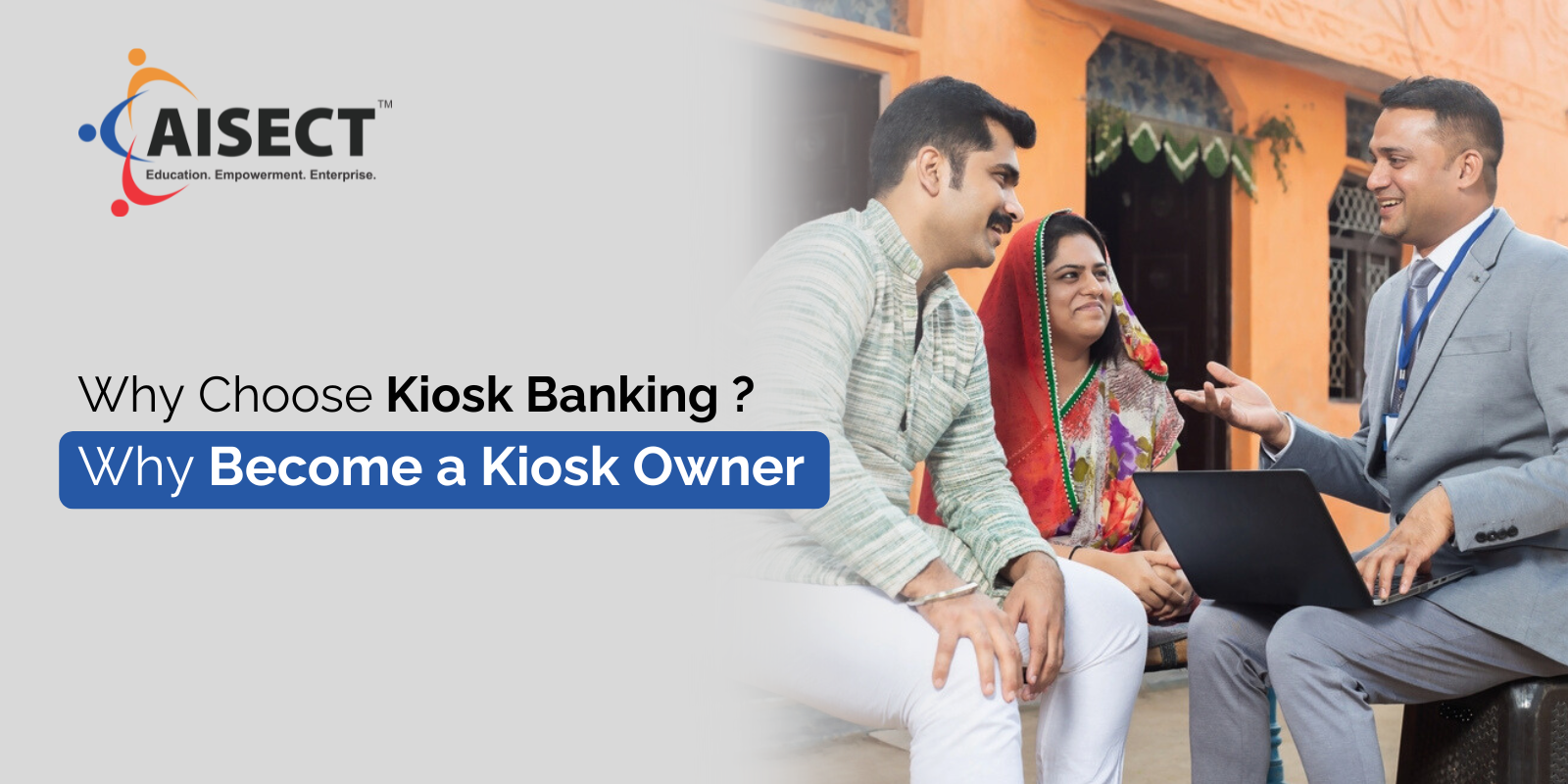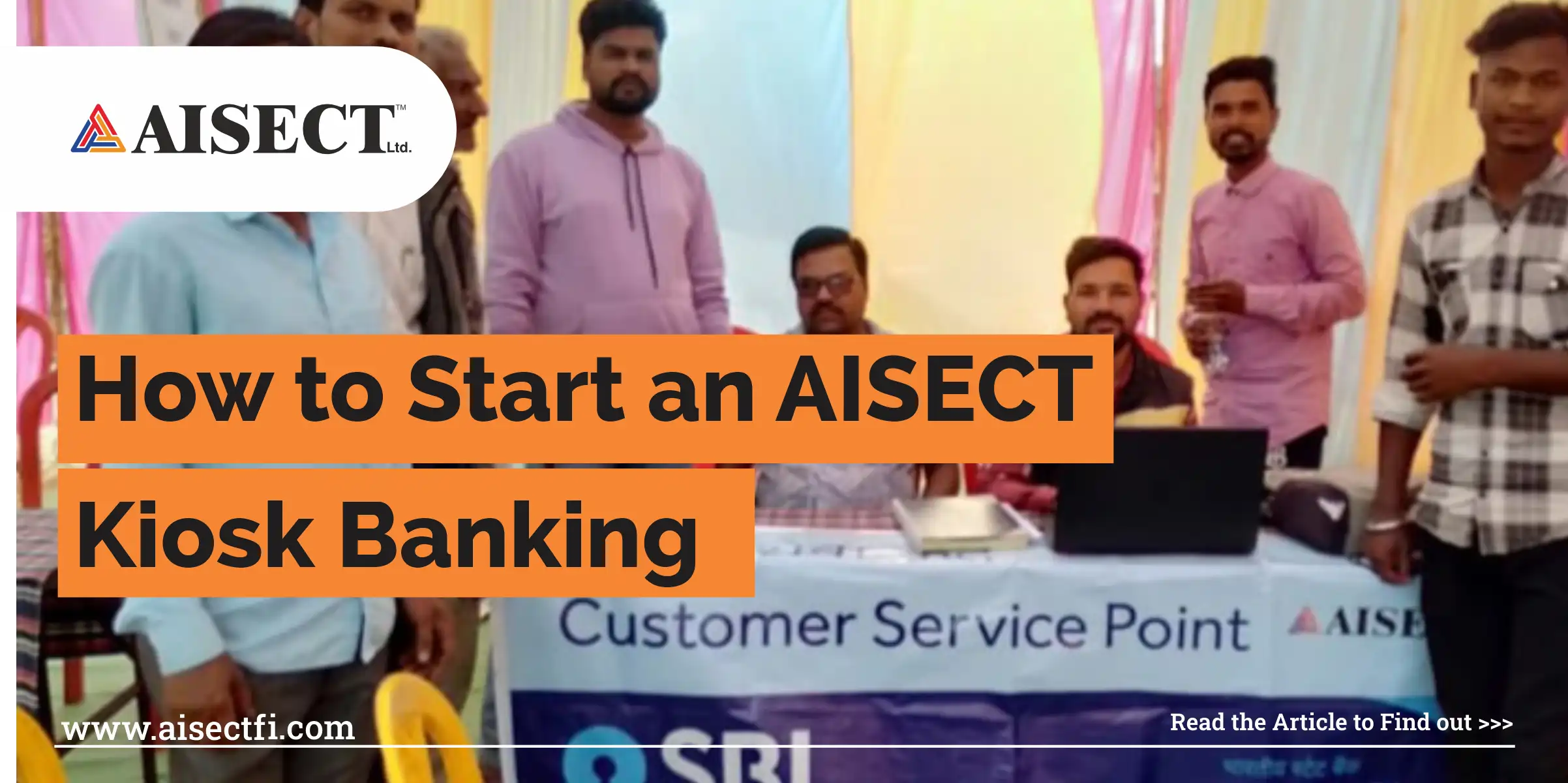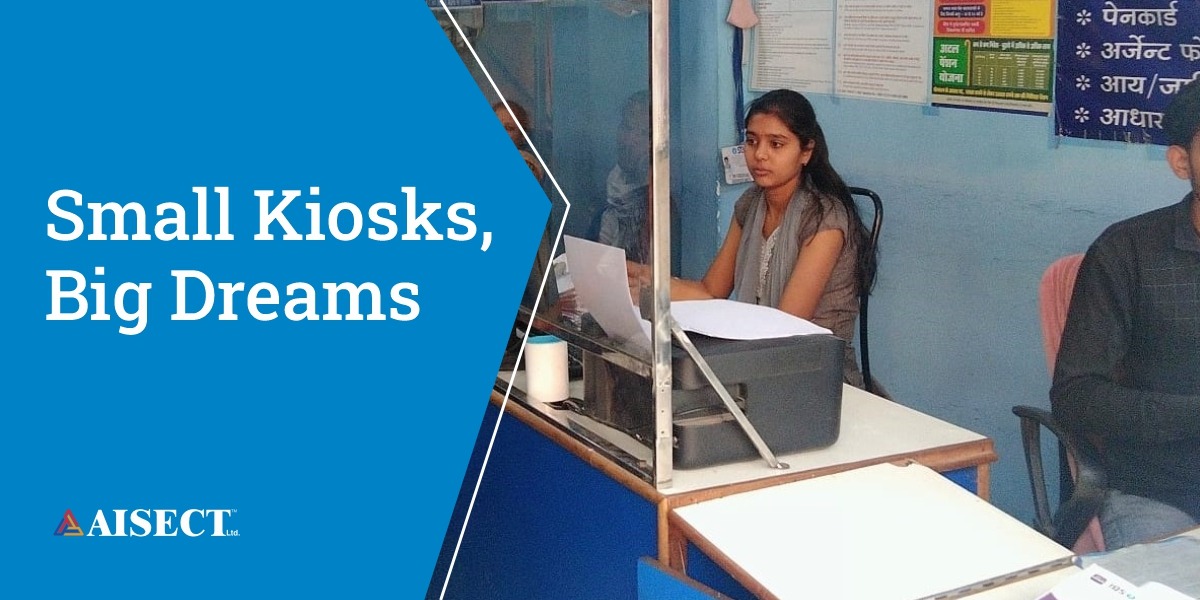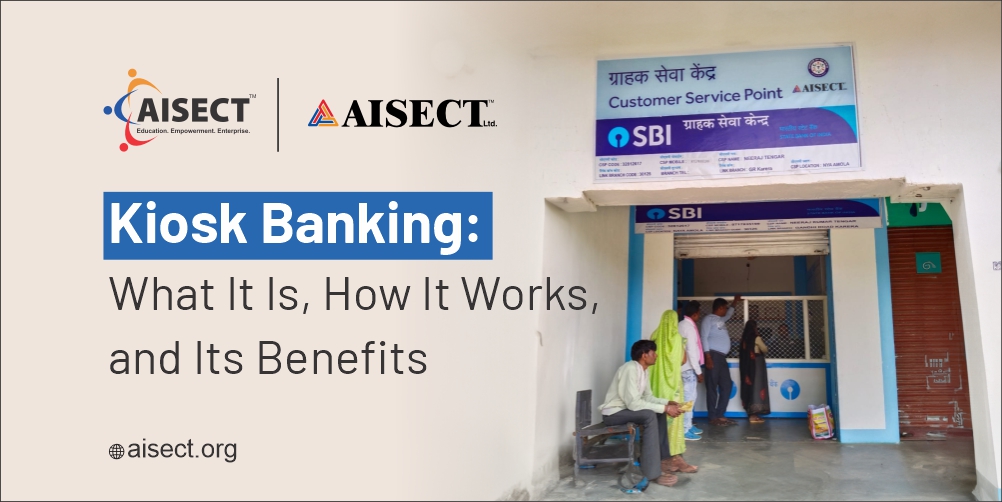Have you ever felt the frustration of travelling long distances to a bank branch, only to find long queues and limited hours? Or maybe you’ve been hesitant to open a bank account due to high minimum balance requirements? If so, kiosk banking might be the perfect solution for you!
What is Kiosk Banking?
Imagine a mini bank branch conveniently located in your local shop or community centre. That’s the essence of kiosk banking. Kiosks are equipped with computers and secure connections, allowing you to conduct a variety of banking transactions without visiting a traditional bank branch.
Kiosk Banking Services
Kiosk banking offers a variety of features that make it more convenient for customers to manage their money outside of traditional bank hours. The following are examples of how they improve the banking experience.
- • Cash deposits and withdrawals: You can deposit cash or take out money using a kiosk, usually with a debit card and PIN.
- • Money transfers: Move money between your accounts or send it to someone else’s account.
- • Balance inquiries: Check your current account balance.
- • Account opening (in some cases): Some kiosk banking setups allow you to open a new bank account, though this might be limited to specific account types.
Kiosk banking offers several benefits:
- • Convenience: Accessible any time the kiosk is operational, often extending beyond regular bank branch hours.
- • Reduced wait times: No waiting in line for a teller.
- • Accessibility: Brings banking services to areas without physical branches.
Why Choose Kiosk Banking?
For rural and semi-urban residents, kiosk banking offers a multitude of benefits:
- Convenience at Your Doorstep: No more long journeys or battling traffic to access basic banking services. Kiosks are often located in familiar, easily accessible locations within your community.
- Flexible Hours: Unlike traditional bank branches with limited operating hours, kiosks often operate with extended hours, including evenings and weekends. This caters to your busy schedule, allowing you to bank when it’s convenient for you.
- Faster Transactions: Kiosks typically handle a smaller range of transactions compared to a full branch, leading to quicker service and shorter wait times. This is ideal for those who need to make quick deposits, withdrawals, or bill payments.
- No Minimum Balance Hassle: Many kiosk banking accounts don’t have minimum balance requirements. This makes it easier for everyone, regardless of income level, to participate in the formal banking system and build a healthy financial future.
- Safe and Secure: Kiosks utilise secure technology and encryption to protect your personal information and transactions. Additionally, kiosk operators undergo training to ensure safe and compliant banking practices.
Components of a Kiosk Banking System
The kiosk banking system has the following two components:
1. Customer Service Point (CSP)
Customers can contact a kiosk bank CSP to raise concerns regarding any account procedures and transactions to get quick solutions.
2. Kiosk Machine
The second component of a kiosk banking system is a kiosk machine. It enables customers to perform transactions and other banking services, including cheque deposits, balance inquiries, and more.
The components of a kiosk banking machine include the following:
- • Barcode scanner
- • Integrated full-page thermal printer
- • Cash acceptor
- • Integrated speakers
- • Touch and non-touch displays
- • Keyboard with trackball
- • Video camera
Differences Between a Kiosk and an ATM
Listed below are the primary differences between ATMs and kiosks:
- Inquiries about accounts, such as requests for cheque books, are available at kiosks but not necessarily at ATMs.
- Customers can access customer service tools at kiosks connecting directly to the bank’s help desk.
- Kiosks offer MIS reporting, but ATMs don’t.
- Kiosks provide users access to Internet banking features to perform online transactions.
Becoming a Kiosk Owner: Building Your Community
If you’re a resident with a good reputation and entrepreneurial spirit, becoming a kiosk owner can be a rewarding opportunity. Here’s why:
- Be Your Own Boss: Run your own business and contribute to your community’s financial well-being.
- Flexible Work Schedule: Kiosks often operate with flexible hours, allowing you to tailor your work schedule to your needs.
- Potential for Income: Earn commission on transactions conducted through your kiosk, creating a sustainable income stream.
- Serving Your Community: Play a vital role in bringing essential banking services directly to your neighbours, fostering financial inclusion and growth.
Eligibility Criteria
During the process of application, the bank required the individuals to have specific skill sets and qualifications to make sure that they can offer banking services to the customers efficiently. The licence or certificate provided by the bank can only be secured if the individual meets all the eligibility criteria mentioned below:
Be 18 or older: This one’s pretty standard – you need to be an adult to handle customer finances.
Have a high school diploma (or equivalent): Basic education shows you can handle business processes.
Secure a small space: Imagine a little booth, around 100-200 square feet, that you can legally use.
Tech it out: You’ll need a computer, a reliable internet connection, and a printer to operate the kiosk.
Register your business: Most kiosk businesses fall under the category of micro, small, or medium enterprises (MSMEs). Registering with the government is usually required.
Experience is a plus: If you’ve ever managed a customer service centre or opened a store before, that experience looks great on your application!
Documents Required for Kiosk Banking
- You will need the following documents to start a kiosk banking business:
- Duly filled application form obtained from the desired bank with two passport-sized photographs
- KYC documents of the applicant, including the applicant’s PAN card, Passport, Voter’s ID card, Aadhar card, Driving Licence, Utility Bills (Water and Electricity Bills)
- The shop’s address proof
- Last 12 months’ bank statement
- Ration card
- Any other documents required by the lender.
How to Get Started with Kiosk Banking?
It may seem challenging to set up kiosk banking. However, the process is significantly streamlined once a reliable, skilled manufacturer is found to design and build the kiosk. When setting up a new kiosk banking service, keep the following in mind:
- Step 1: You must contact an established and trusted kiosk manufacturer.
- Step 2: You must understand the environmental requirements for operating a kiosk banking service, including space, availability of electrical connections, internet accessibility, and more.
- Step 3: Once the above process is complete, you can deploy the kiosks and measure customer interactions to better respond to customer demands.
Kiosk Banking Limits
Kiosk banking makes provision for individuals to entertain a bank holder facility with Rs. 50,000 as the maximum limit and Rs. 10,000 as the limit for maximum daily transactions. If the account balance exceeds the mark, it will be shifted to a steady bank account
Conclusion
The limitations of traditional banking for rural and semi-urban communities are a thing of the past. Kiosk banking has arrived, offering a powerful tool for financial inclusion and empowerment. With its convenient locations, flexible hours, and faster transactions, kiosk banking removes the obstacles that previously hindered access to essential financial services.
For customers, kiosk banking represents a chance to manage your finances on your own terms. Whether you’re a farmer, a small business owner, or a student, kiosk banking allows you to deposit your hard-earned money, pay bills, and access your funds securely, all within your own community.
Ultimately, kiosk banking is a win-win proposition. Customers gain convenient access to financial tools, while kiosk owners contribute to the economic well-being of their communities. As kiosk banking continues to grow, it promises a brighter financial future for all, one conveniently located kiosk at a time.for more information visit www.aisectfi.com or call 0755-2432857




